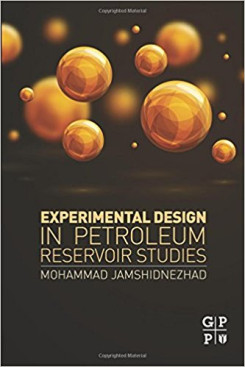Experimental Design in Petroleum Reservoir Studies
One of the main duties for reservoir engineers is reservoir study, which starts when a reservoir is explored and it continues until the reservoir abandonment. Reservoir study is a continual process and due to various reasons such as complexity at the surface and limited data, there are many uncertainties in reservoir modelling and characterization causing difficulties in reasonable history-matching and prediction phases of study. Experimental Design in Petroleum Reservoir Studies concentrates on experimental design, a trusted method in reservoir management, to analyze and take the guesswork out of the uncertainties surrounding the underdeveloped reservoir. Case studies from the Barnett shale and fractured reservoirs in the Middle East are just some of the practical examples included. Other relevant discussions on uncertainty in PVT, field performance data, and relevant outcomes of experimental design all help you gain insight into how better data can improve measurement tools, your model, and your reservoir assets.
- Apply the practical knowledge and know-how now with real-world case studies included
- Gain confidence in deviating uncertain parameters surrounding the underdeveloped reservoir with a focus on application of experimental design
- Alleviate some of the guesswork in history-matching and prediction phrases with explanations on uncertainty analysis
- Genre: All Books, Flow Simulation
Cast & Characters
| 1-8 | Introduction |
| 9-56 | Reservoir modeling |
| 57-98 | Experimental design in reservoir engineering |
| 99-168 | Case studies |

